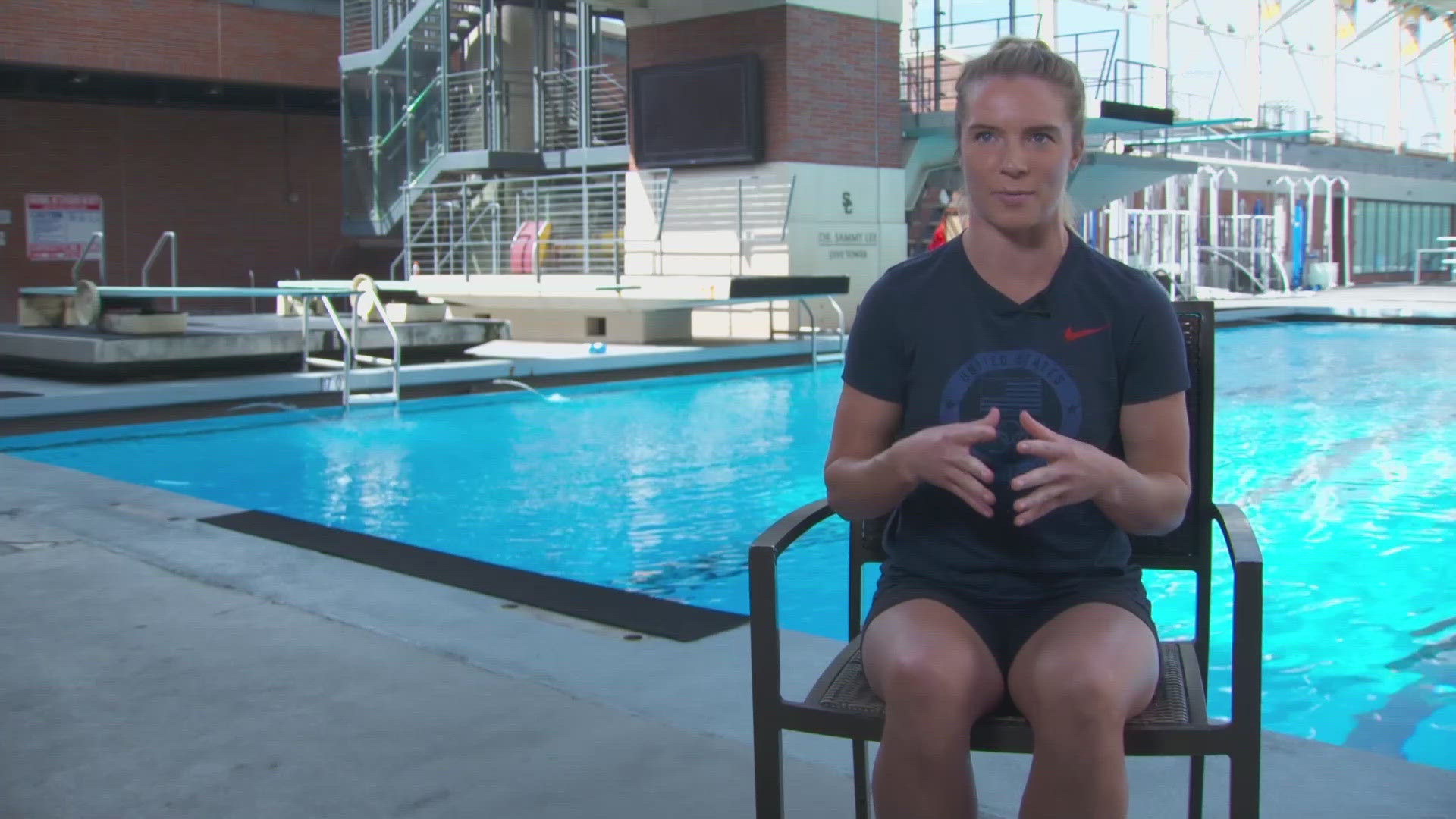INDIANAPOLIS — As the Olympic Games in Paris approach, many athletes are letting other athletes know it's OK not to be OK.
It started at the Tokyo Games three years ago. Gymnast Simone Biles shocked the world when she withdrew from the team competition.
Biles hit a tipping point when she experienced "the twisties." The term refers to a mental block when a gymnast loses control of their body in the air.
Biles has since become a mental health advocate, and she's not alone.
Standing on a platform 32 feet above the water can be a scary and lonely place. Olympic diver Katrina Young has been doing it since she was 7.
"If you do the dive right, it feels magical," Young said. "It feels like you're just like flying through the air, like you're an arrow, just having the wind run past your face. You kind of feel like supernatural in the moment. Now if you do it wrong, you feel superhuman."
Olympic athletes spend thousands of hours practicing and trying to perfect their craft. Physically, they are some of the most gifted athletes in the world, but they also have to have a strong mental approach to their sport.
"Honestly, it's a constant battle every day. I'm working on my mentality. I'm working on my mind and body connection. And it's something that I have a team around me helping. I have a sports psychologist. I have my teammates, I have so many people that encourage me. I literally have a huge team that's always inspiring me and encouraging me," said Young.
Young knows she needs balance when she's diving, but more importantly, balance in her life. She says you have to believe in yourself and love yourself, no matter the results.
"I think the biggest message that I take from pushing myself, is being my best self," she said. "It's about becoming the person I want to be and to do that I really have to show self-care."
Nevin Harrison won a gold medal in Toyko in 2021. She is back to defend her title in Paris, and while she has suffered some injuries along the way, she also knows about dealing with mental struggles.
"I remember in Tokyo when I heard about Simone Biles, and I don't think I fully understood it. I think it's because I never experienced that level of spotlight, but she did. I find myself lucky enough to never experienced that level of spotlight still, but the amount increased and then I realized, 'Oh, that's what it feels like, that's what she was going through,'" said Harrison.
Being vulnerable, having conversations about mental health, Harrison wants everyone to know it's OK not to be OK.
"I think the good parts definitely exist and what the world sees of me from the outside is definitely there. But it's also OK to be a complete mess. A lot of the time people don't see that, they think she's put together and well-spoken and goes out and wins races, but I also have meltdowns on the water and I cry, and I say I don't want to do this anymore and that's totally fine," Harrison said.
"You don't have to have this plastic mold of yourself 24/7 because you think that's what you need to do. I think it's all kind of a process of really good days and really bad days. And if you expect perfection every single day, you're never going to get that. I think it's just about doing your best and showing up every day and giving it your all," said Harrison.
The International Olympic Committee launched a mindfulness program, providing 2,000 licenses to athletes for the Calm app. It's part of a day-to-day attempt to support mental health and wellbeing. A mental fitness helpline will also be available.

